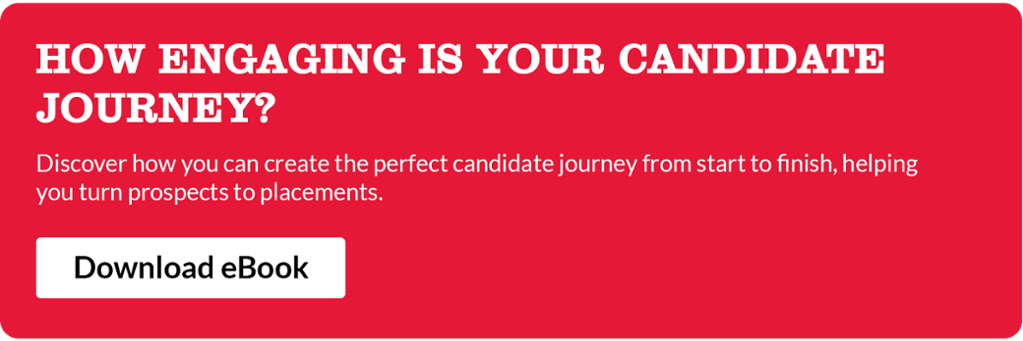Wouldn’t it be great if we could read our candidates’ minds so we knew exactly what we needed to do to turn them into a placement?
Well, sometimes data can help you do pretty much that.
Let’s take a look at some stats and insights that tell us a lot about today’s candidates’ needs, wants and expectations during the hiring process.
1. Candidates find your outreach flattering
 63% of candidates say they’re flattered when a recruiter contacts them and as much as 90% of them will be open to new opportunities – it’s just how you approach them that really matters.
63% of candidates say they’re flattered when a recruiter contacts them and as much as 90% of them will be open to new opportunities – it’s just how you approach them that really matters.
Today’s candidates will decide within the first few seconds of a call whether they think you’re a recruiter worth speaking to, so get to the point of your call as early in the conversation as possible – and try to give them an ego boost to keep them hooked.
Candidates love praise and will favour those who dish it out, so be sure to personalise your messages for each candidate focusing on solid information you’ve pulled from your research.
Don’t use generalist remarks like, “I can see based on your experience that you’d be a great fit for this role”.
Do use details that show you’ve done your research such as, “The experience you’ll have gained during your time at company X will set you up to excel in this new role”.
2. Candidates love authority figures
Research has shown that candidates are 56% more likely to respond if they’re contacted directly by a hiring manager, an authority figure or an industry expert.
Having the hiring manger contact a candidate directly is not really going to be feasible (in fact, it’s completely impossible if you’re recruiting on behalf of a client) so focus on what you can control: portraying yourself as an expert in your niche.
If you know your jobs and your industry inside out, this will come across immediately in your conversations and give them confidence in you from the word ‘go’. The old-fashioned tactic of making small talk with your candidates to open up a conversation is very dated – portray yourself as an authority figure by demonstrating you’re an expert in your niche.
3. Company culture is low priority at first contact
 Now, I’m not saying here that culture isn’t important to candidates – we all know it is. In fact, 35% of candidates say they’d pass up on their dream job opportunity if they felt the company culture wasn’t a right fit.
Now, I’m not saying here that culture isn’t important to candidates – we all know it is. In fact, 35% of candidates say they’d pass up on their dream job opportunity if they felt the company culture wasn’t a right fit.
However, company culture and mission rank of least importance to candidates when first hearing from a recruiter.
On first touch point, they just want to know the details of the job (89%) and why they fit the role (54%), company culture and mission can be discussed once the candidates has expressed interest in the role.
4. Candidates spend a lot of time researching before they apply
Candidates are big researchers nowadays, and if they can’t find an adequate amount of information online about a company, a role, or even you as the recruiter – this will really put them off speaking to you.
Therefore, you need to invest time and effort in the online spaces candidates go to when they’re looking for that information:
- Your website (53%)
- LinkedIn (38%)
- Search engines/Google My Business/Google for Jobs (35%)
- Contacts they know who work at the company (32%).
They want to see reviews from other candidates, success stories published on your social media and any other form of solid proof that they should trust you to manage the next step in their career, so have these on display and easy to find.
5. An easy candidate journey is key
Our technology-heavy landscape has created a situation where candidates want everything yesterday, and job hunting is no different. Candidates hate time-wasting, and as many as 80% of candidates admit they’ve abandoned a job application because it was taking to long.
So be your candidates – apply for your own jobs to see what the journey is like for them and what can be done to improve the candidate experience. If you make it a seamless journey, you'll see candidate engagement increase which will ultimately result in more direct applications.
Alan McFadden
Alan is the Associate Director of Growth at Firefish. An agency recruiter in a former life, he loves helping recruiters find ways to recruit smarter.




